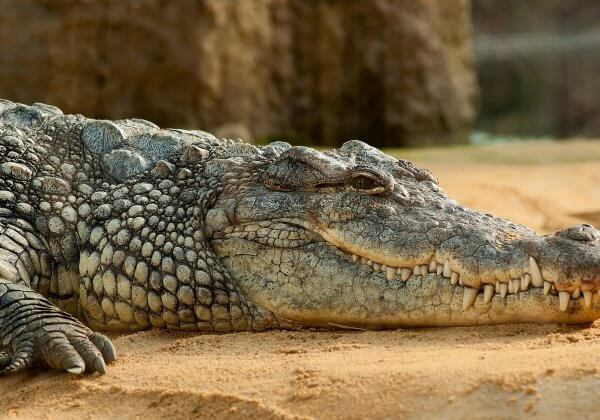Why Vegan Fashion Is Always the More Sustainable Option
We’re in the midst of a fashion revolution. Australians are increasingly concerned with how their clothes are made, and the market is responding. More designers and retailers are putting policies in place to eliminate cruelly produced fur, mohair, angora, wool, down, leather, and silk from garments, saving millions of animals from suffering and being barbarically slaughtered. Now, the questions are, what will the clothes of the future be made of, and what impact will they have on the environment?
Animal Fur vs Plastic
While animal abuse is the major reason brands are ditching animal skins, many companies are also taking the environmental impact of these “materials” into consideration.
The Sustainable Apparel Coalition has looked at the environmental, social, and labour impact of various different fabrics across their supply chains and devised a ranking system called the Higg Material Sustainability Index. Basically, the higher the score, the worse the material is for the environment.

As you can see, animal skins are the most devastating.
Likewise, the groundbreaking “Pulse of the Fashion Industry” report released last year found that three of the four most environmentally damaging materials are derived from animals –leather is the worst offender, followed by silk, conventionally grown cotton, and wool.
Since leather and wool are lucrative co-products of the unsustainable meat industry, this is hardly surprising. Raising and killing animals for their flesh and skins not only wastes precious resources, such as water, but also is the leading cause of rainforest destruction.
Cows and sheep create extraordinary amounts of gas, and according to the US Food and Agriculture Organization, animal agriculture is responsible for 14 to 18per cent of global greenhouse-gas emissions. Then there’s the waste created by the animals, which may be left to decompose in huge lagoons or be sprayed over crop fields, resulting in run-off that contaminates nearby soil and waterways.
By contrast, the “Pulse of the Fashion Industry” report found that polyurethane leather (PU) has less than half the impact on the environment that animal-derived leather does, and a similar comparison can be made between wool and polyester. Just let that sink in for a second. Animal-derived leather and wool are twice as harmful to the environment as polyurethane and polyester, which are plastic!
 Unreal Fur
Unreal Fur
What About Microfibres?
Microfibres are the tiny plastic strands which shed off garments when they’re washed, making their way into the sewage system and eventually into our rivers and oceans. At present, there’s no conclusive evidence as to how they will affect marine life, but polluting the ocean with plastic obviously isn’t a great idea.
Luckily, there are some very easy ways to prevent this process with your own laundry. Wash bags, such as the Guppyfriend, are designed to catch these invisible strands, or you can even fit a filter to your washing machine. You can also switch to washing your clothes with cold water, since higher temperatures cause a greater reaction with the fabric. Some items – like your luxe faux-fur coat – shouldn’t be washed that often anyway.
https://www.facebook.com/stopmicrowaste/photos/a.1000510786726536.1073741827.1000503036727311/1489472347830375/?type=3&theater
The Eco-Fabric Boom
Fashion is all about innovation, and textile manufacturers are rising to the challenge by creating a huge array of eco-friendly fabrics made from organic matter. You can buy handbags, shoes, wallets, and watches made out of cork, mushrooms, or pineapple leaves. More designers are incorporating weaves made from hemp and bamboo that grow without the use of pesticides or chemical fertilisers, while being completely biodegradable. And soy fabric, also known as “vegetable cashmere”, is made from a by-product of soybean processing.
In addition, scientists and designers are working on how we can upcycle our rubbish into new garments. Australian fashion pioneers like Unreal Fur are looking into recycled polyester, or rPET, which is made from old plastic bottles, and hemp solutions to make their garments even more sustainable. Stella McCartney creates her vegetarian leather from recycled polyester, which “creates 24 times less of an environmental impact, as calculated through the Environmental Profit and Loss”. Meanwhile, a group of innovative design students recently won the 2018 Biodesign Challenge for their Animal-Free Wool, made from hemp and coconut fibres treated with enzymes extracted from oyster mushrooms.
What You Can Do to Help the Environment
- Shop vegan.Vegan fabrics – even if they include synthetics – are far better for the environment than using animal skins. And no one has to die for them.
- Do your laundry with care, and buy a microfibre-catching wash bag.
- Stop buying clothes you won’t wear. It sounds obvious, but we could all be more conscientious about our wardrobes.
- Join our activist network, and sign petitions asking companies to stop hurting animals and the environment for fashion!







